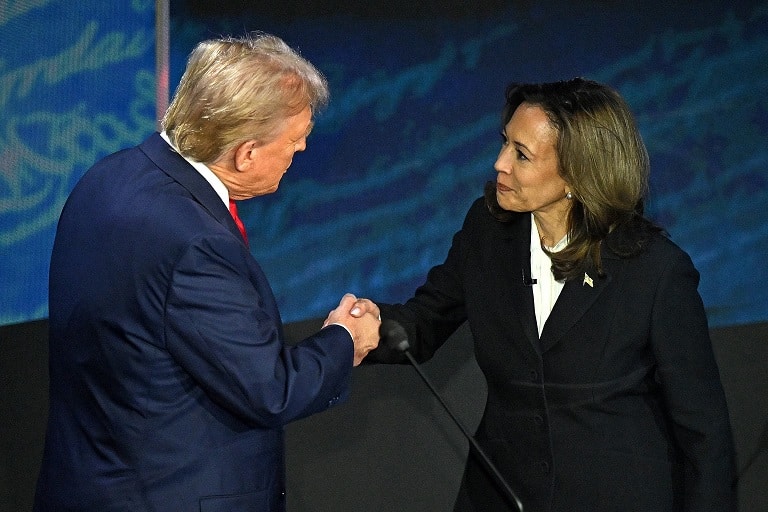Welcome to POLITICO’s West Wing Playbook, your guide to the people and power centers in the Biden administration and Harris campaign.
If you are a frequent reader of this newsletter, you have heard a lot in recent days about the fight over muting or not muting the microphones in Tuesday’s presidential debate.
After President Joe Biden’s aides negotiated to have microphones muted for one candidate when the other is speaking, Vice President Kamala Harris’ team fought hard to get ABC, the host network, to alter that rule so that any and all of Donald Trump’s comments and interruptions would be audible to the tens of millions of viewers watching on television.
They were unsuccessful in getting the mics unmuted. And while Harris’ team says she’s having to adjust her debate strategy, another operation is breathing a major sigh of relief: the transcriptionists at VITAC, the company that has provided closed captioning for televised debates since it was founded 38 years ago.
The company’s general manager, Doug Karlovits, spoke to West Wing Playbook about the evolution of presidential debates — and why, in his view, a cleaner conversation benefits viewers and both candidates.
This conversation has been edited for length and clarity.
This debate over muted microphones has to be a new development. What have you thought as you’ve watched the campaigns wrangle over this?
For years, we were able to have differences of opinion, and while they talk over each other on occasion, from what I remember, it wasn’t like what we saw in some of the recent debates. Muting the mics is an interesting way to resolve that, so that each candidate can put forth their answers without being constantly interrupted.
And that’s much easier to transcribe cleanly.
From a standpoint of putting words to what’s being spoken, that’s extremely helpful. Because no matter how you’re producing the text, it’s hard even when you’re a hearing person trying to listen to people who are just yelling over each other or speaking very loudly over each other.
How complicated is it for you to provide the service when it just goes completely off the rails?
When it goes off the rails, it’s really difficult, because you can’t caption two people speaking at the same time, right? So whoever’s the more dominant or loudest person usually is the person who would get captioned.
I recall being at the first Biden-Trump debate in 2020 in Cleveland, and it was a real mess. Did you have a hard time with that one?
That debate, you tried to follow who was answering the question, but sometimes you just couldn’t make out what was being said because they were talking over each other. No matter what the question was, there was always that back and forth over each other that made it challenging for folks who were working the debate.
So it’s actual people doing this transcription, not AI?
It can be done with humans, it can be done with AI. That’s really driven based on what the client’s preference is. But whether you’re using human captioning or AI technology, it’s nearly impossible to capture two people speaking at the same time.
Can you prepare for something like this? Do you?
Yes. We have what we call our RTS support team — real time transcription support — that starts researching the key terms, names of legislation, because the debates can go anywhere. We don’t get the questions in advance, and you don’t know what’s going to be talked about. So it’s all about building up the repository of information that you’re going to be able to cite and be able to put up correctly.
Tens of millions of Americans will watch this. How many of them use or rely on closed captioning?
A lot of people. People who may not be deaf, but they’ve fallen to the hard hearing — that group has continued to expand. And as the younger generation has come in, they view content differently than my generation. They’re watching it on their phones and oftentimes have the audio muted, and they’re using the captions as well. So captioning has really become a lot more widespread than what it was 30 years ago.
Another change this year with the debates is there’s no audience. Does that also help?
The audience has had a lot of influence in trying to spur the candidates to talk over each other. Now that it’s just the two or three people who are asking the questions and no audience, you don’t have any of that playing to the audience like we had in the past.
But there’s no guarantee that, even with muted microphones, you’ll get a clean feed, or a transcription that makes sense to people at home, because the candidates don’t always speak clearly or in complete sentences, right?
Yes. When thoughts are incomplete, that makes it hard too, because you sit there and you’re like: ‘Wait … where are we now?’ Because you’re trying to put out — you’re trying to create that text, and then it’s like … that’s not a complete thought.

